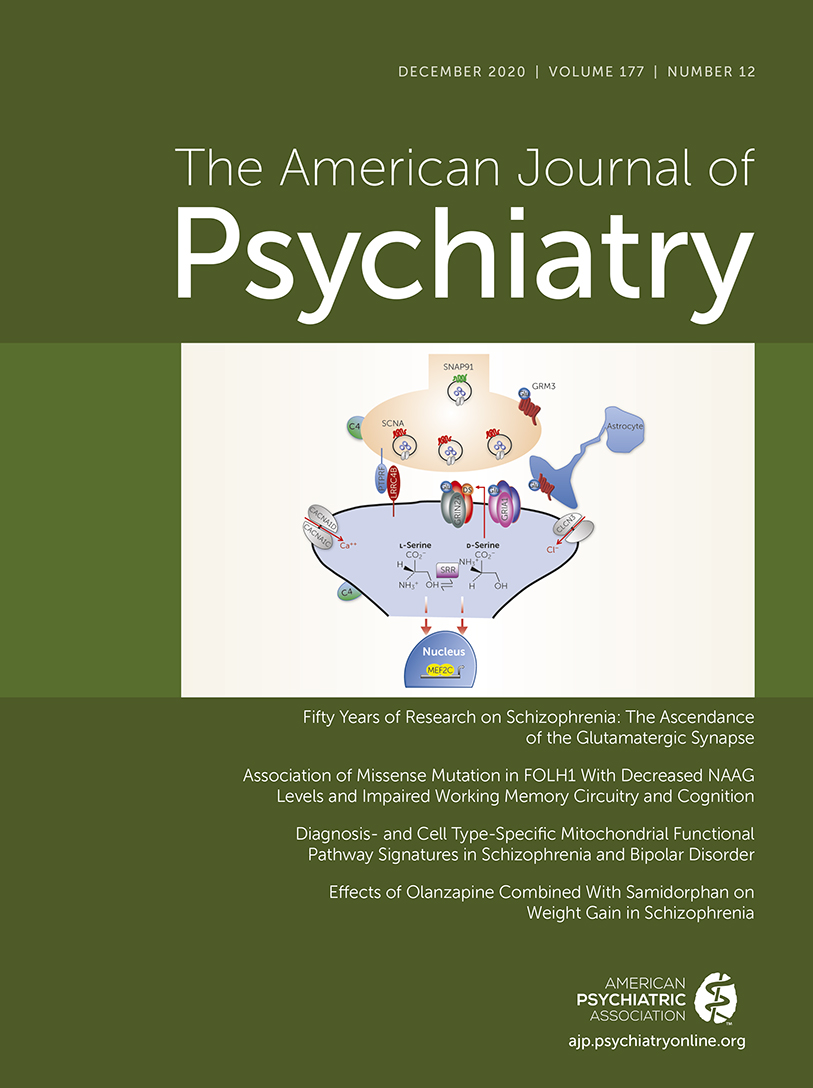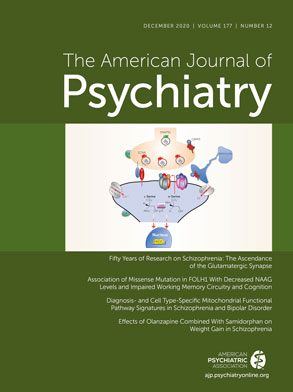T
o the E
ditor: Jonas and colleagues’ “third hypothesis,” as described in their article published in the April 2020 issue of the
Journal, seeks to explain the important but poorly understood association between duration of untreated psychosis (DUP) and outcomes (
1). We commend the authors for advancing the field by testing a novel theory using sophisticated analytic techniques. However, several issues warrant critical examination, lest the article’s findings be construed as negating the need for reducing treatment delay.
First, the DUPs in this study are extremely long (mean days, 726, SD=94.89; mean weeks, 103.7; median days, 346; median weeks, 49.43) and may surpass a threshold beyond which longer-term outcomes may be uniformly low. Although the observed values may be “shorter” than those noted in the United States, as the authors state, they stand well above many estimates in the literature on the association between DUP and outcomes. Reviews have reported lower DUPs, with a 61.3-week mean (based on 33 studies) (
2) and a 12-week median (based on 28 studies) (
3). The World Health Organization and the International Early Psychosis Association consensus statement recommends that early intervention services achieve mean DUPs of under 3 months (
4). This is supported by recent findings that extending early intervention improved outcomes only when the DUP was below this threshold (
5,
6). Thus, even the study’s “short” DUPs may miss the window of effectiveness for early intervention.
Second, the trends observed by the authors could be explained by more malleable, time-variant factors, particularly the quality of treatment received before and after the index hospitalization, which was deemed the endpoint for DUP. Lead-time bias arises when comparing groups at different stages in the natural history of a disease. Indeed, the natural history of psychoses can be altered by best-practice treatment, particularly early in the illness course, which would have changed functional trajectories in ways that this study could not capture. Notably, the treatment received by the study cohort is not comparable with current early psychosis treatment standards.
Third, using a hospitalized sample limits generalizability. Currently, many patients access early intervention systems without ever being hospitalized. This selection bias is further exacerbated by high attrition across time points, which is likely nonindependent of functioning. In addition, the sample is not an epidemiological cohort representing the full spectrum of illness severity and DUP, which would be needed to truly understand the relationship between DUP and outcome trajectories.
Because this article could affect practice and policy, its methodological issues necessitate cautious interpretation and substantial replication among populations receiving care within present-day standards and in universal coverage systems. Finally, beyond its relationship to outcomes, shortening the DUP is unquestionably desirable because it reduces unnecessary suffering.

